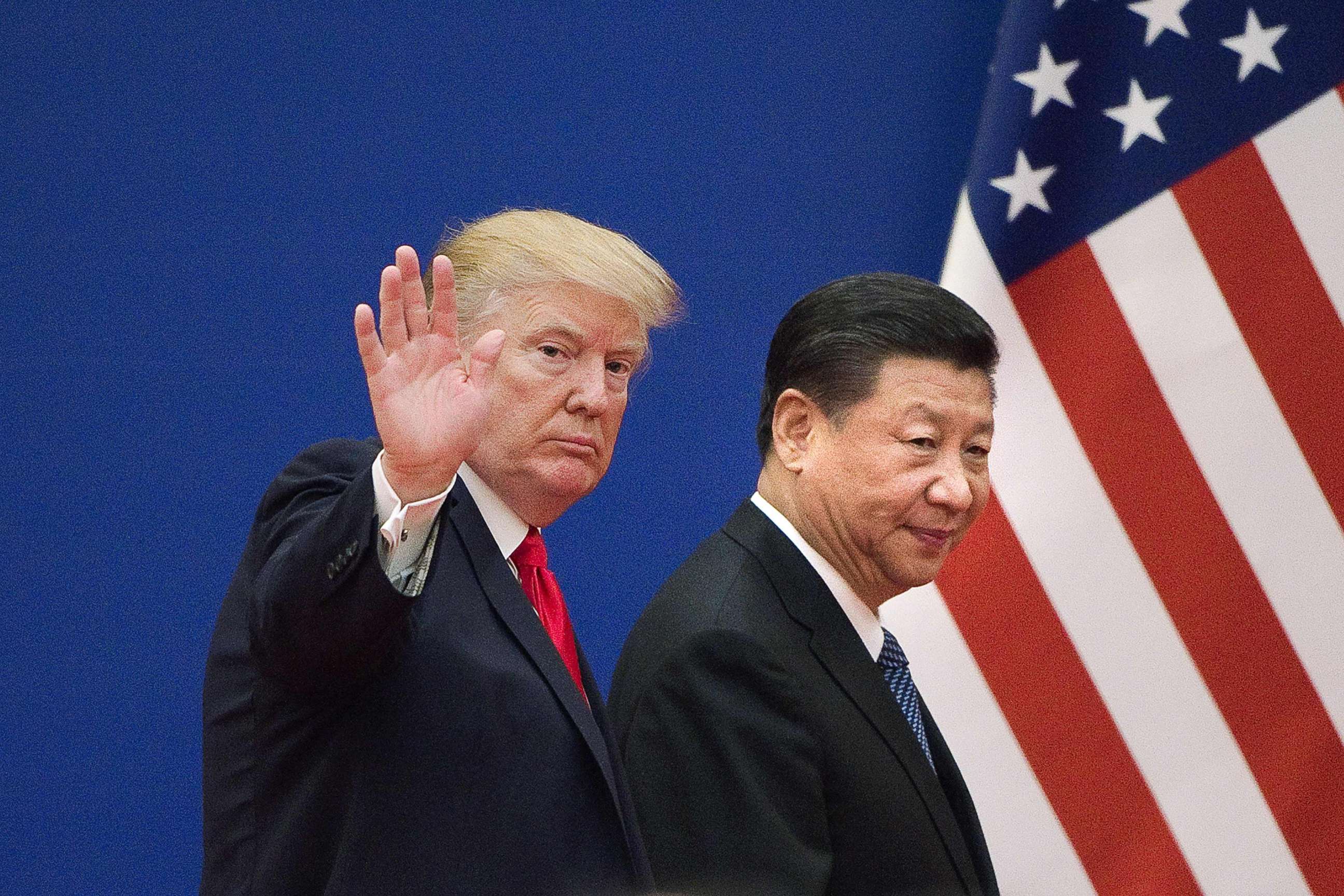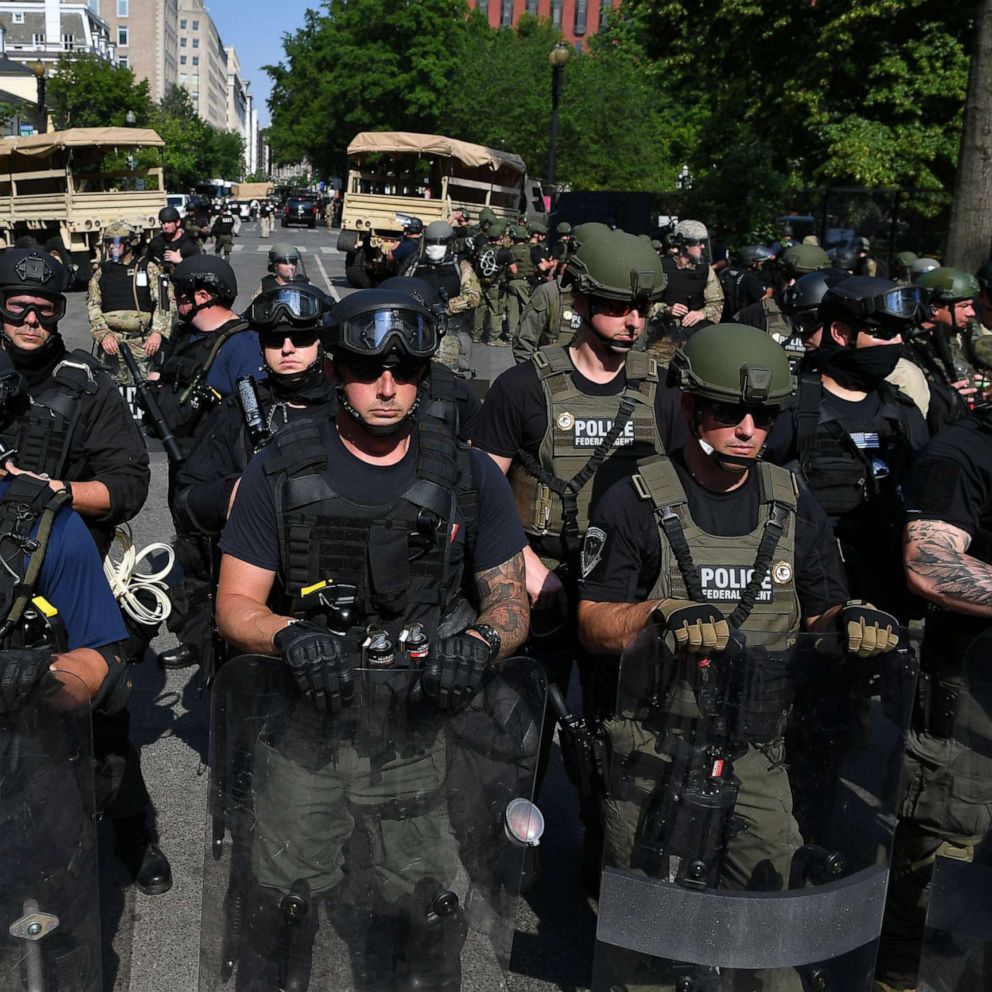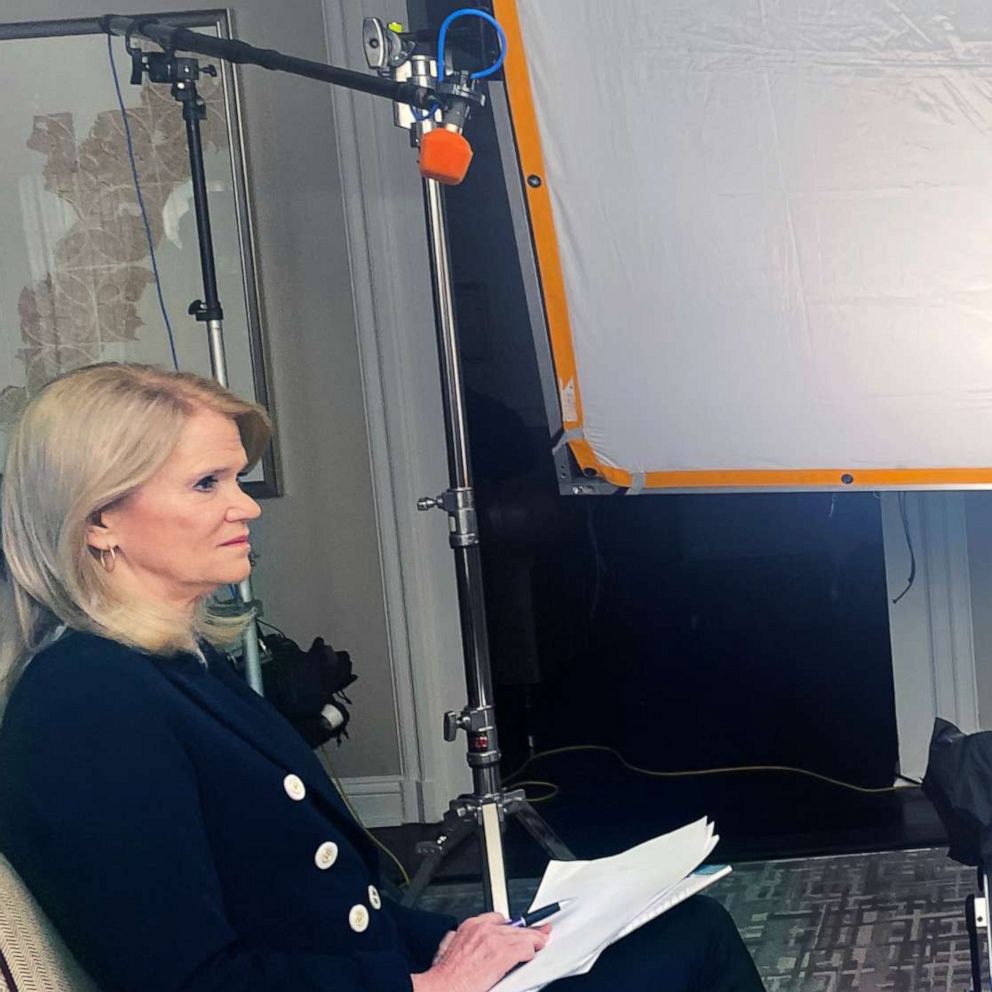Bolton dismisses Trump's tough talk on China: 'No telling' what deal he'd take if reelected
The former national security adviser criticized Trump's trade negotiations.
In the wake of the coronavirus pandemic and ahead of the November presidential election, President Donald Trump has escalated his intense rhetoric against the Chinese government. But his former national security adviser John Bolton said that his harsh words mask a softness on China and a penchant for its president, Xi Jinping.
"Xi Jinping would be right up there with (Russia's Vladimir) Putin in his ability to look at Donald Trump and say, 'This is somebody that we can move ultimately on our side,'" Bolton told ABC News in an exclusive interview.
After spending 17 months at Trump's side, Bolton characterized the president as full of empty words and at times lies, willing to put his personal relationship with Xi ahead of the country's interests and easily marked and manipulated by foreign adversaries.
It's "a pattern quite contrary to the image (Trump) would like to convey -- of a decisive president who knows something about what he's doing. There really isn't any guiding principle that I was able to discern other than what's good for Donald Trump's reelection," Bolton told ABC News Chief Global Affairs Correspondent Martha Raddatz. "This is a danger for the republic."
In particular, Bolton argued that Trump took steps to avoid insulting or offending Xi as he pursued "the great white whale of the Trump administration, the big trade deal with China."
Most recently, that meant Trump praising China's response to the outbreak of the novel coronavirus and its "transparency" in January and February, even as the Chinese government hid or refused to share details of the virus with the international community.
"Donald Trump didn't wanna hear about it. He didn't wanna hear about it because he didn't wanna hear bad things about Xi Jinping. He didn't wanna hear bad things about China covering up what had happened with the outset of the disease. He didn't wanna hear bad things about the Chinese economy that could affect the 'fantastic' trade deal he was working on," Bolton said.
"We lost a lot of time because of that," he added.

Bolton also said Trump pushed to remove penalties on Chinese companies found to have violated U.S. law or accused of endangering U.S. national security, in order to please Xi or curry favor in trade negotiations.
One of China's largest telecommunications companies, ZTE had violated U.S. sanctions repeatedly, including after reaching a settlement with the Department of Justice. Its most recent violations meant the firm, which has ties to the Chinese government, would face a scorching financial penalty and a ban on the U.S. market -- a move that could kill the company.
After a phone conversation with Xi, Trump reversed course and canceled the fines and ban -- all in the name of buoying trade talks, Trump told The Wall Street Journal Wednesday. But Bolton told ABC News he and other top advisers were aghast and furious.
"I mean, it's one thing if you had a clear foreign policy rationale to downplay a criminal or regulatory proceeding because of a larger strategic interest. It's quite another just to do it off-the-cuff, on-the-whim, give your buddy Xi Jinping a benefit. This was not part of some sustained interagency policy-making process. This was just conversation with Xi Jinping. And I find that very troubling," he said.
In the interview with The Wall Street Journal Wednesday, Trump defended the reduced punishment ZTE received -- a smaller fine and changes to its board -- as "an amazing deal."
In the book, Bolton discusses other alleged incidents of Trump making alarming statements to Xi, especially after talking to the authoritarian leader.
Bolton wrote Trump didn't favor sanctioning China, for example, over its detention of more than a million Uighurs and other Muslim ethnic minorities in the country's western province known officially as Xinjiang, but, "It only got worse." During the G-20 meeting in June 2019, according to Bolton, Xi told Trump why he was building the detention and "reeducation" camps, and, "Trump said that Xi should go ahead with building the camps, which he thought was exactly the right thing to do."
Trump and Trade Representative Robert Lighthizer have both denied that this is true, with Lighthizer telling a Senate panel Wednesday, "Absolutely untrue. Never happened. I was there. I have no recollection of that ever happening. I don't believe it's true. I don't believe it ever happened."
Six months prior, during a December 2018 G-20 meeting, Xi told Trump he wanted to work with Trump for six more years, according to Bolton, and the president "replied that people were saying that the two-term constitutional limit on presidents should be repealed for him."
"Knowing Xi was 'President for life' in China, Trump was trying to compete with him. Later in the dinner, Xi said the U.S. had too many elections, because he didn't want to switch away from Trump, who nodded approvingly," Bolton wrote.
At that same dinner, Trump asked Xi for the release of Victor and Cynthia Liu, two U.S. citizens who Chinese authorities have banned from exiting the country. After visiting their grandfather, the 20- and 28-year-old have been held in China because their father is a Chinese businessman in the U.S. wanted by Beijing on bank fraud allegations.
After Xi dismissively responded Victor and Cynthia were also Chinese citizens, according to Bolton, "Trump shrugged his shoulders disdainfully and dropped the issue. So much for protecting U.S. citizens. The Chinese probably hope the dinner would go on all night."
The example that seems most "stunning" to Bolton is one that's been widely reported this past week -- his assertion that during that June 2019 conversation, Trump was "pleading with Xi to ensure he'd win" reelection by purchasing more U.S. soybeans and wheat.
"He focused on terms like China buying more agricultural products, which he said to Xi Jinping directly would help him in the farm states -- a really, to me, stunning statement by a president to the leader of an adversarial foreign country," Bolton told ABC News.
He added that was something Trump discussed often: "The idea that buying agricultural products was a good thing in the farm states, whose electoral votes Trump needed -- he talked about it all the time in those terms."
Trump's former acting chief of staff Mick Mulvaney defended that, saying Trump pushed for agricultural purchases because China increasing them was both good for the country and good for Trump's reelection.
"Yes, he talked about that probably every time he talked to President Xi. Would selling American agricultural products be good for the country and thus good for the president's reelection chances? Yes, they would be. But to put those two factually true statements together to make it look like the president was just begging China for inappropriate help, that's bizarre," Mulvaney told CNN.
Trump has cast Bolton as a liar and defended his record on China, telling The Wall Street Journal, "There's nobody been tough on China like me."
But Bolton argued that when Trump is one-on-one with Xi, he caves, warning that what he called Trump's election season rhetoric will fade if he wins in November and again pursues a trade deal.
"We're in a period today, and we will be in that period up until Nov. 3, Election Day, when rhetoric about Chinese behavior is tough, it's harsh -- and some steps have been taken," Bolton told Raddatz. "But how long after Nov. 3 will the harsh rhetoric prevail if Donald Trump wins? How long will it be before he's calling Xi Jinping and saying, 'Let's together on those trade negotiations again?'"
"When the policy one day is harsh and the next day it's not, next day it's something else, that's not a policy at all," he added.







